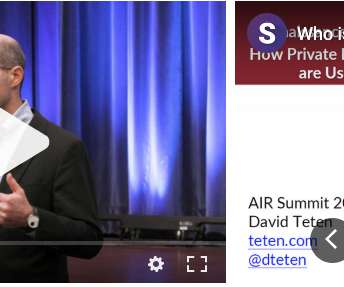Is @AngelList Syndicates Really Such a Big Deal?
Both Sides of the Table
SEPTEMBER 29, 2013
If you track the venture capital industry it would be hard to miss the conversation going on this week over AngelList “Syndicates.” My favorite new VC blogger, Hunter Walk, weighed in with some thoughtful comments about how Syndicates might actually pit, “ angel vs. angel.” Must be doing something right!












Let's personalize your content